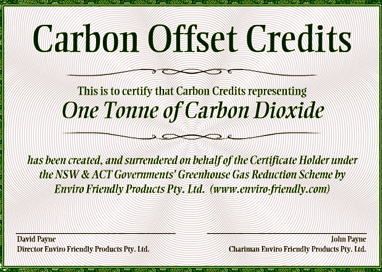

The flawed nature of carbon ‘offsetting’ marketing is attracting a range of legal risks: non-compliance, shareholder action, litigation, and regulatory enforcement. Why is carbon 'offset' marketing dangerous for businesses? The accurate label for these credits is simply a donation towards climate-friendly projects and not, as marketing for high-carbon products often claims, as a means to ‘offset’ the harmful climate impacts of the things we buy. Enhancing natural sinks will only get us so far, getting to net zero by 2050 is not possible without a hard and fast reduction in emissions.Ĭarbon credits are not offsets in the way that a profit offsets a loss. To put this into perspective, a single oil and gas company plans to use a tenth of the globally available unused land to ‘offset’ its emissions. Often described as a ‘wild west’ industry, too many projects have been found to harm the interests of local communities and offer false claims of actually making a difference to the amount of CO2 absorbed and stored.Īnother issue is there simply isn’t enough room on the planet to plant the number of trees needed to counterbalance the current level of global emissions without harming food supply. Good examples support local communities and can help to protect critical natural ecosystems, such as forests, that act as ‘carbon sinks’ absorbing harmful greenhouse gases.īut ‘quality’ in the unregulated carbon credit market can be hard to come by, and harder still to verify. These natural projects can be valuable in fighting climate change. The purchase of these credits contributes to projects which aim to help mitigate climate instability through funding new technological or natural solutions. Why is carbon 'offset' marketing a problem?Ī carbon credit is calculated to remove or avoid 1 tonne of CO2, which is around the same as the amount of carbon dioxide emitted in a flight from Paris to New York. Underneath the advertising puff is a concept that is causing real problems for climate action. Small donations to climate projects do not actually counterbalance continuing emissions and, what’s worse, the ‘offset’ myth often interferes with urgent efforts to reduce emissions in the first place.

In effect, this tells us the solution is for us to choose to compensate for the climate impacts of such high-emitting products.īut this is marketing fiction. Companies promote carbon offset products or advertising alongside airline flights, car petrol, home gas supply, red meat, and even plastic packaging.

Or so the story goes.Īs customers, we are sold carbon offsetting more and more. The premise seems simple: if you give money to projects that remove carbon from the atmosphere, it balances out the emissions created through consumption, and so the product is made ‘green’ or the company can get to net zero. It normally involves making a small payment towards climate solutions projects – most commonly planting or protecting trees – in return for a notional ‘carbon credit’. Carbon offsetting is a concept many companies use to say that they have counterbalanced their emissions or to claim that their products are ‘carbon neutral’.


 0 kommentar(er)
0 kommentar(er)
